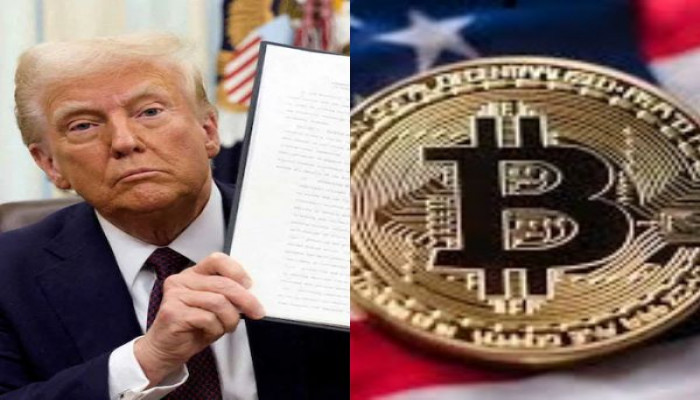President Trump signs executive order establishing Strategic Bitcoin Reserve
- In Reports
- 08:24 PM, Mar 07, 2025
- Myind Staff
In a landmark move, U.S. President Donald Trump has signed an executive order establishing a Strategic Bitcoin Reserve, reinforcing the nation's commitment to digital assets. The announcement was confirmed by David Sacks, White House Crypto and AI Czar, through a post on X. This initiative is aimed at securing and managing government-held Bitcoin while ensuring it is treated as a long-term strategic asset.
A key aspect of the executive order is that the reserve will not rely on taxpayer funds. Instead, it will be financed exclusively with Bitcoin obtained through criminal and civil forfeiture cases. David Sacks emphasised that the reserve will be "capitalised with Bitcoin owned by the federal government that was forfeited as part of criminal or civil asset forfeiture proceedings." This approach ensures that no public funds are spent in building up the reserve while also preventing seized assets from being prematurely liquidated.
While the federal government has never conducted a full audit of its digital asset holdings, estimates suggest that it controls approximately 200,000 Bitcoin. Trump's executive order mandates a thorough review of all federally held digital assets, ensuring transparency and accountability in the government's cryptocurrency reserves. This audit is expected to provide clarity on the exact volume of digital assets in government custody and their potential impact on national financial strategies.
One of the most significant provisions of the executive order is a ban on selling Bitcoin from the reserve. This decision aims to position Bitcoin as a long-term store of value rather than a short-term asset to be liquidated for immediate financial gains. Past government sales of seized Bitcoin have resulted in major missed opportunities—Sacks noted that the U.S. lost over $17 billion in potential profits by selling Bitcoin too early. By prohibiting future sales, the administration intends to maximise the asset's long-term value and leverage its strategic importance.
In addition to the Bitcoin reserve, the executive order also creates a U.S. Digital Asset Stockpile, which will hold other cryptocurrencies confiscated in forfeiture cases. Unlike the Bitcoin reserve, which is protected from liquidation, the stockpile will be managed by the Treasury Department, ensuring a structured approach to handling digital assets beyond Bitcoin. This initiative signals a broader effort to regulate and strategically manage the government’s holdings in the evolving digital economy.
Treasury Secretary Scott Bessent and Commerce Secretary Howard Lutnick have been tasked with overseeing further policy development related to the reserve and stockpile. Their focus will be on budget-neutral strategies to maintain, manage and potentially expand the reserve, ensuring that it remains a sustainable and valuable national asset.
The executive order aligns with Trump’s broader vision for digital assets. Recently, he made headlines by stating that the government would stockpile Bitcoin, Ethereum, and three other cryptocurrencies. While his stance has received mixed reactions, White House Crypto Czar David Sacks describes this move as a significant step toward making the U.S. the "crypto capital of the world."
With this executive order, the U.S. government is making a decisive shift in its approach to digital assets, positioning Bitcoin as a key strategic asset. By prohibiting its sale and mandating a full audit of government holdings, the administration is reinforcing the long-term importance of cryptocurrency in national financial planning. While the move has sparked debate, it marks a clear pivot toward recognising Bitcoin as a valuable and strategic reserve asset.







Comments